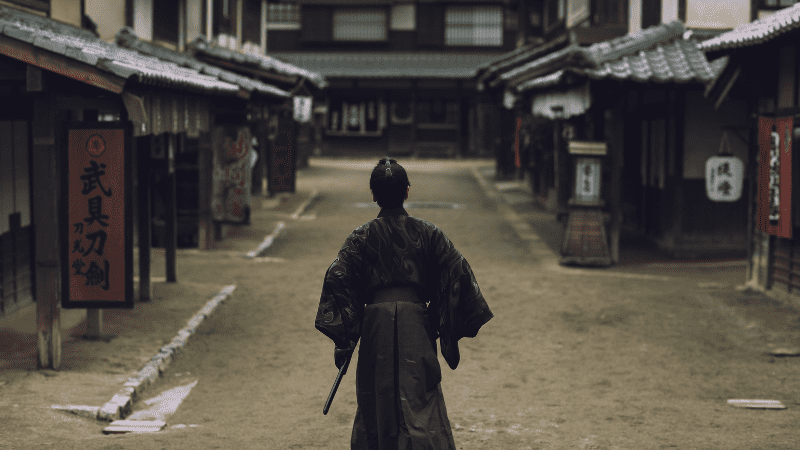Miyamoto Musashi on the holistic approach
There have certainly been situations in which you missed crucial things and the outcome was not as ideal as it could have been in retrospect. It was precisely to prevent such situations that the Japanese Rōnin included the following core statement in his teachings:
Learn to look at the situation you are in as a whole.
- Miyamoto Musashi
For example, in his teachings Musashi repeatedly addresses the fact that for victory in battle it is crucial not to stare frantically at one particular thing. Instead, the warrior must always let his gaze rest unstrained on the entire event. Only in this way can one perceive everything and react to every action of the opponent, according to Musashi (for example, in the "Gorin no Sho" in the Book of Water as well as in the Book of Wind).
How to learn to look at things as a whole

It is not easy to keep track of an entire situation, Miyamoto Musashi has also been aware of that.
He therefore explains that only when one masters something properly, it is no longer necessary to observe everything individually. So, it is elementary to practice in the things that are crucial for one's path. This basic expectation runs through his entire teaching and reflects the Japanese dedication to learning.
In Heiho (the strategy for warriors), the attainment of this holistic overview of a situation is a high goal that culminates in the so-called "look at the heart". With this penetrating view of the mind, the warrior will reveal weak points of his opponent. This only works if one does not allow oneself to be distracted, it is said. If the overview is lost, confusion takes hold and leads to defeat.
It is not surprising that a samurai directs his whole life to acquire the necessary skills. For this, not only procedures are played through again and again in training, but also in real situations. Through the acquired Experience the true nature of things becomes apparent.
It is often from a necessary Unexcited the speech in Musashi's teachings. Only a calm mind can look at things impartially and thus avoid misjudging them.
So these are the two components that, with disciplined training and total dedication, ultimately teach you to see the totality of things.
Further, the contemplation of the totality of things presupposes another fundamental teaching: you must accept things as they are. Only then can you recognize their true essence. If you want to learn about Musashi's views on acceptance, you can find here my Articles on this topic.
Transferring Musashi's teaching to today's world
The usefulness and also the application for our contemporary and especially the Western world is not always obvious in Miyamoto Musashi's teachings.
In the first place, Musashi taught warriors and especially their swordplay. Nevertheless, the principles are transferable to almost any situation.
For example, the enemy image that in the actual teaching is another warrior can be transferred to the task to be accomplished.
So it is this task that needs to be looked at holistically.
Instead of being focused on one or a few facets, it helps to have a less narrow perspective to be able to include potential other factors.
That bring different findings:
Is there anything that...
- you can use for your advantage
- could be to your disadvantage
- is not relevant for the further course of events
For example, when attempting to mediate with an angry customer, you may insist on trying to appease them as quickly as possible. While this is ultimately the goal, you should only If you don't pay attention to this, you might miss why the customer is actually angry - and I don't mean the obvious reason, but the levels underneath. You might only notice these, for example, if you let the customer have his say and describe his view of things.

Incidentally, the quote about looking at the totality of things, has a well-known equivalent in the German-speaking world:
"You can't see the forest for the trees."
- Christoph Martin Wieland
The thinker and poet in the 18th century thus pointed to the same circumstance: if you get lost in details, you will not be able to see the big and the whole.
Did you like this article? You can let us inform you about new articles:







